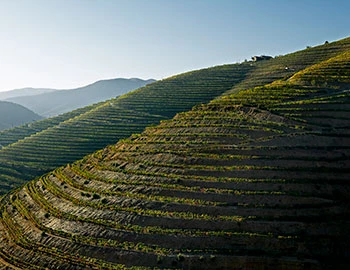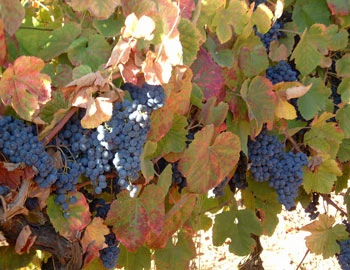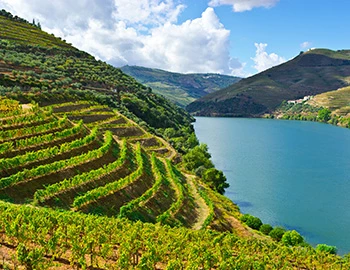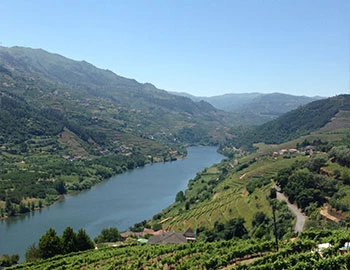Vale do Inferno Reserva 2019
Vale do Inferno Reserva 2019
Quinta de la Rosa, DOC Douro, 750 ml

Attributes
| Grape variety: | Touriga Nacional, Sousão |
| Producer: | Quinta de la Rosa |
| Origin: | Portugal / Douro |
| Other vintages: | 2021 |
| Ripening potential: | 3 to 12 years |
| Drinking temperature: | 16 to 18 °C |
| Food Pairing: | Roasted lamb gigot, Spiced grillades |
| Volume: | 14.0 % |
| Note: | Contains sulphites |
Quinta de la Rosa
Portugal and England have engaged in wine trading since the 14th century. Over the course of time, the British also settled in Portugal, establishing agricultural estates (quintas) to grow wine, and founding large trading companies in Porto. The Bergqvist family are descendants of these settlers, still involved in production and trade on the strength of innovative ideas and great commitment.
Quinta de la Rosa is headed by Sophia Bergqvist. She is the granddaughter of Claire Feuerheerd, who received Quinta de la Rosa as a christening gift from her English grandmother. Sophia's father, Tim Bergqvist, took over the management in 1972, after Claire Feuerheerd’s death. The quinta experienced some turbulent times – the depression in the 1930s, the Second World War and difficult times in the 1960s. When the Portuguese revolution broke out, the temptation to sell was great. But Sophia's mother, Patricia, spoke out strongly against this move.
With Portugal’s entry into the European Community in 1986, both father and daughter decided to join forces to make Quinta de la Rosa one of the leading independent producers of quality port wine. Very soon afterwards, Quinta de la Rosa became one of the first to also bottle dry Douro wine. Today, not only can you find their excellent port wines in the best wine shops, hotels and restaurants all over the world, but also their extraordinary dry white and red wines. The La Rosa White Wine Reserva, for example, surprises with its mineral freshness, complexity and length, standing toe to toe with top Burgundy wine.
The Douro Valley is also a fantastic travel destination. Quinta de la Rosa offers visitors charming rooms, equipped with all the modern comforts. In summer 2017, they opened the Cozinha da Clara restaurant, which serves Portuguese dishes and recipes handed down from grandmother Claire. www.quintadelarosa.com

Touriga Nacional
National emblem
The Touriga Nacional originally comes from the Dão, in the heart of Portugal. There is a village there named Tourigo. But it became famous in the Douro Valley, where port wine is produced. When the five best varieties were selected from the motley assortment of grapes growing in the vine terraces in the 1980s, the Touriga Nacional was the first choice. It smells of cassis, raspberry, plum, violet and liquorice, and is concentrated on the palate with supple tannins. It does well not only in port wine, but also in dry reds. Solo, the Touriga Nacional tastes almost too intense; therefore, it is usually blended with other varieties such as Touriga Franca and Tinta Barroca. Developed in barriques, the wines show their full potential. In the past ten years, the cultivation area of this grape has more than doubled, and spread to the whole of Portugal.

Douro
Douro: from port wine to cult wine
For centuries, the legendary reputation of the Douro valley has rested on port wine. By 1970, the five best had been selected from dozens of long-established varieties to be grown on a large scale. Simultaneously, the Douro vintners created the conditions that today allow them to conquer export markets with concentrated and fruity red wines along with port wines. The unique terraced vineyards along the Douro were declared a UNESCO World Heritage Site in 2001.

Portugal
Portugal – Much more than port
Situated on the southwestern tip of Europe, this country is, despite its small size, blessed with a multitude of landscapes. Austere mountains alternate with green valleys and golden beaches. Vines have thrived against this backdrop for over 4,000 years, brought to the peninsula by Phoenicians, Greeks, and Romans.
Portugal has over 500 autochthonous varieties. The term derives from ancient Greek, and means roughly “of the land itself.”



